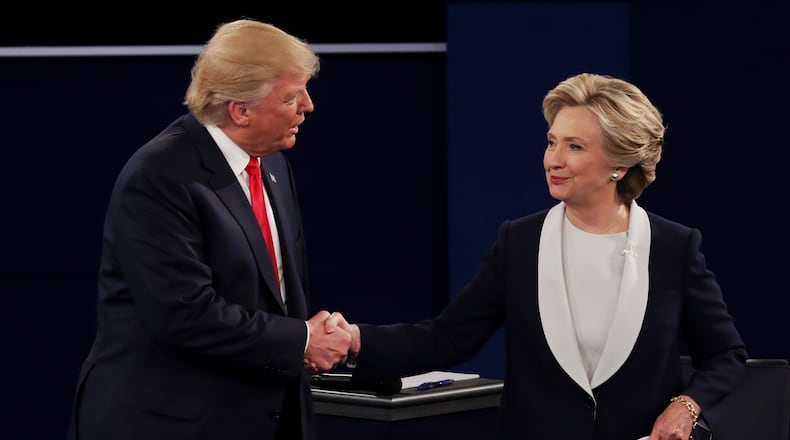The 2016 election may feel like the mother of all presidential contests, but in at least one notable metric it falls short of the past two White House races.
Georgians in 2016 are on track to fork over less than half of what they did to presidential candidates four years ago, and only about three-quarters of what they did in 2008, according to federal data.
The Federal Election Commission estimates that Georgians have donated roughly $14.4 million to presidential candidates in the 2016 cycle. Roughly 53 percent of that money went to Republican candidates over the course of the last two years, while Clinton took roughly 39 percent of the share.
There’s still a few weeks left, but the 2016 total so far is less than half of the $33 million Georgians gave in 2012 and significantly less than the $20.3 million they donated in 2008.
On the one hand, the numbers are shockingly low for a presidential election that’s being viewed as such a high stakes affair with no incumbent already occupying the White House.
But there are also several factors that could help explain why Georgians may have kept their checkbooks a little closer.
For starters, Donald Trump and Hillary Clinton are historically unpopular candidates. The Atlanta Journal-Constitution's most recent poll found that 58 percent of Georgia voters hold an unfavorable view of the Democrat while 59 percent feel the same about the GOP nominee. The lack of enthusiasm surely doesn't lend itself to big fundraising hauls.
Trump’s self-funded primary run may have also prompted some Republicans who would have been inclined to donate to hold back. Trump’s appeal to blue color workers – as opposed to the moneyed elites who generally were not big fans – also may explain why the GOP is nowhere near the $23.4 million haul the party attracted in Georgia in 2012 with Mitt Romney at the top of the ticket.
Another factor that’s notable is that the country as a whole is more or less on track to match the amount of money individuals donated to presidential candidates back in 2012. What’s different is how much less of a role Georgia is playing in the money game this year.
About the Author


